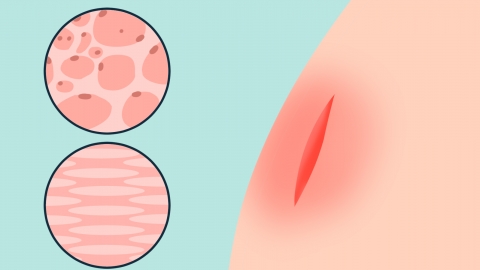What medication can be used for elderly people whose wounds are difficult to heal?
Delayed wound healing in the elderly may be caused by factors such as aging and reduced regenerative capacity, inadequate nutrient intake, malnutrition-related wounds, varicose veins, diabetes, and other conditions. This can be improved through nutritional supplementation, management of underlying diseases, and medical treatment. If a wound fails to heal for a prolonged period or is accompanied by redness, swelling, or pus, prompt medical attention is necessary.
1. Reduced Repair Capacity Due to Aging: With age, elderly individuals experience decreased skin elasticity, reduced collagen synthesis, and slower cell regeneration, leading to prolonged wound healing and increased risk of delayed healing. It is recommended to enhance nutritional intake, particularly protein and vitamins.
2. Inadequate Nutrient Intake: Poor appetite or a monotonous diet in older adults may lead to deficiencies in protein, vitamin C, zinc, and other essential nutrients, impairing tissue repair and regeneration and resulting in poor wound healing. It is advised to adjust the diet by increasing consumption of eggs, lean meat, fruits, and vegetables.

3. Malnutrition-Related Wounds: Long-term malabsorption of nutrients in the elderly leads to deficiency of essential amino acids and fatty acids, impairing normal wound tissue repair and resulting in slow healing and poor granulation tissue formation. A high-protein, high-calorie diet is recommended. Patients may use medications such as compound amino acid injection, fat emulsion injection, and vitamin C injection under medical supervision to improve symptoms.
4. Varicose Veins: Age-related deterioration of venous valve function impairs blood return in the lower limbs, causing local tissue hypoxia and ischemia, which hinders wound healing. Symptoms may include leg swelling and prominent veins. Medications such as micronized purified flavonoid fraction tablets, diosmin tablets, and calcium dobesilate capsules may be used under medical guidance to alleviate symptoms.
5. Diabetes: Poor long-term blood glucose control in elderly patients results in high blood sugar levels that suppress white blood cell activity and impair circulation, increasing the risk of wound infection and delaying healing, often accompanied by persistent redness and swelling. Treatment may include insulin injection, metformin hydrochloride sustained-release tablets, and gliclazide tablets as directed by a physician.
Daily care should include keeping the wound clean and dry, avoiding contact with water, and regularly changing sterile dressings. Encourage appropriate physical activity to promote blood circulation. Provide easily digestible, nutrient-rich meals to support wound healing.




